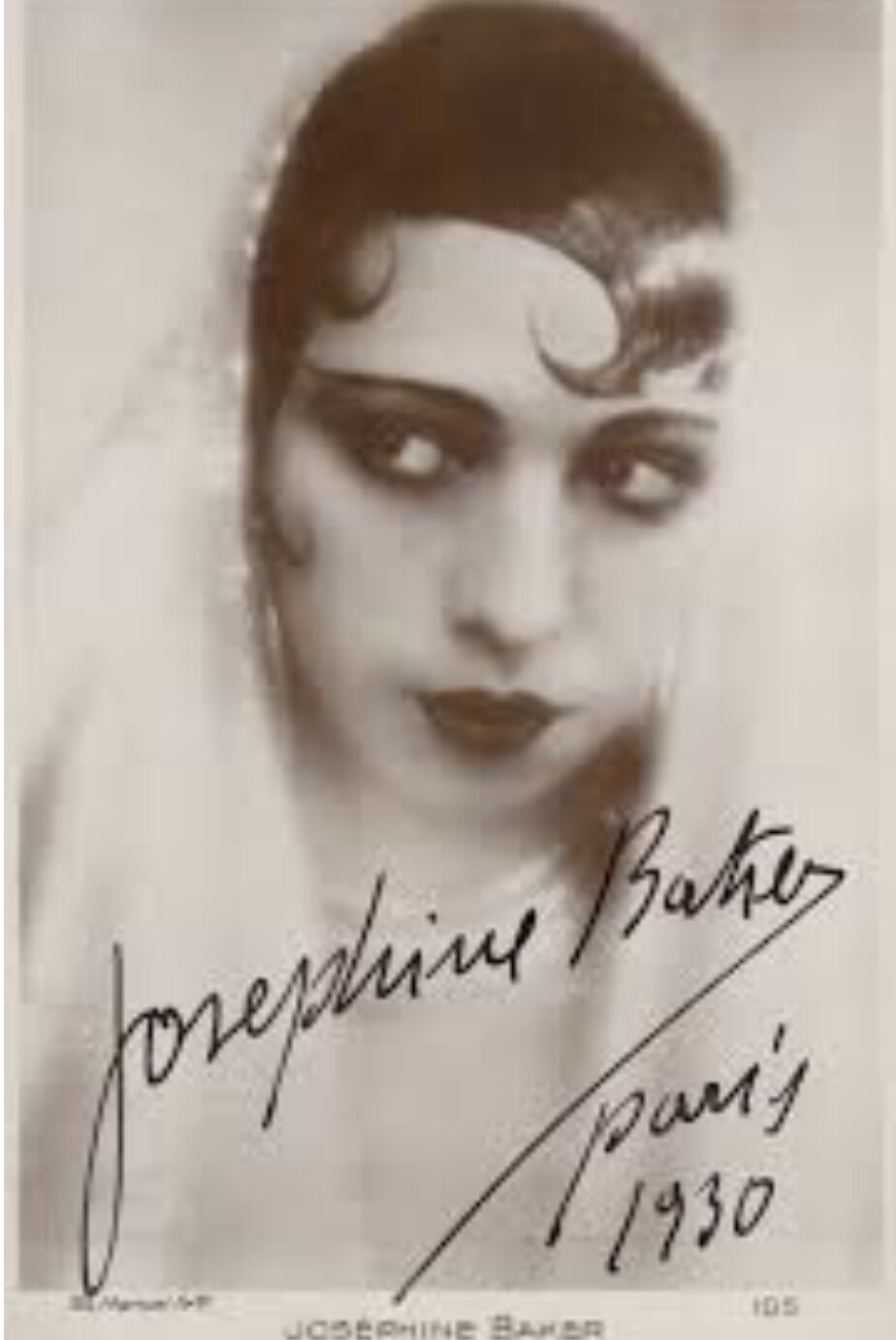Josephine Baker: Advent Calendar of Song: Day Twenty-Two
How many great dancers have also been great singers? Josephine Baker (1906-1975) is especially famous as a dancer – I have a poster of her in my sitting room, clad in seemingly just a few bananas and tilting way off balance - but I love her yet more as a singer. (The wikipedia entry on her begins by saying she was “an American-born French entertainer, French Resistance agent, freemason, and civil rights activist.” Top that for versatility!)
I’m somewhat embarrassed that she and Ella Fitzgerald the only singer of African descent in this Advent Calendar largely composed of operatic singers, especially since I’ve been corresponding in recent months about my admiration for Leontyne Price (whom I never heard live) and Shirley Verrett (whom I did). When I came to opera, those women were already in the firmament, along with Grace Bumbry, Martina Arroyo, and Jessye Norman (all of whom I saw, too); my shelves boast many of their recordings.
Still, I have no embarrassment about choosing Josephine Baker. She was an American who first made it big in Paris in the mid-1920s: her Danse Sauvage became an immediate legend, with Ernest Hemingway calling her “the most sensational woman anyone ever saw”. Dance people may be interested to know she worked with George Balanchine on Broadway in Ziegfeld Follies of 1936; she did a scantily clad dance number partnered by four men in black tie – the kind of thing for which she had long been adored in Paris but which shocked the New York critics and several of her Broadway colleagues (Fanny Brice and Bob Hope were among the fellow members of her cast who shunned her). She was replaced by Gypsy Rose Lee later in the run. It should have been her triumphant return to her homeland. Instead, mortified by her reception, she gave up her American citizenship, returning to France and embracing it with ardent patriotism. (Balanchine, never forgetting her, spoke of the beauty of her legs years after her death.)
She can take a song you already know (Cole Porter’s “I’ve got you under my skin”), can alternate between singing it in French (“Vous êtes partie de moi”) and English, and, while charming you with apparent lightness, plant the song deep in your nervous system. This song, “Madiana” https://www.youtube.com/watch?v=UuqX30SDtK0 (by Mairotte Almaby), catches some of her most singular qualities: she opens with some casual coloratura (get that messa di voce at 0.11-0.16!), switches to an insidious pop-Caribbean quasi-Latin rhythm, and wraps it up with a return to carefree coloratura. She reminds me of several of my other favourite singers – Luisa Tetrazzini and Gracie Fields at the soprano end, Conchita Supervia at the mezzo end – but there’s a kind of freely playful, sensuous joy that’s all her own. (In 1934, she sang an Offenbach opera.) Her French is also special – I remember Randall Jarrell’s line “Gettrude’s French was so bad that anyone could understand it” from Pictures from an Institution - and endearing. I love the way she exclaims “C’est l’heure” as if saying “Sailor!” You’ll see that, in the first stanza, she changes the lyrics of the second and fourth line. (Madiana is a small island in the Caribbean.)
Madiana (Mélodie Antillaise) (1933)
Madiana, petit bijou des îles,
Madiana, aux lèvres de corail
Ta bouche est une fleur fragile
De chair palpitante et d’émail.
Madiana (West Indian Melody)
Madiana, little island gem,
Madiana, with coral lips
Your mouth is a fragile flower
Of quivering flesh and enamel.
Madiana, ton nom que je murmure
Sur le ciel de mon pays charmeur
Est comme un chant dans la ramure
Berçant mes rêves enchanteurs.
C’est l’heure où la fougère endort
Madiana, your name, which I whisper
Across the sky of my charming country
Is like a song in the branches,
Cradling my enchanted dreams.
This is the time when the fern sleeps
Et comme tu seras mon abeille
Où la tubérose, tout blanc
Grisent les amoureux de la terre.
C’est l’heure où je veux, dans tes bras,
Gouter de charmes de tes pareils.
M’entendre dire sans cesse… Madiana
And you will be my bee
Where the tuberose, all white,
Intoxicates the lovers of the earth.
It is the hour where I want, in your arms,
To taste the charms of your likeness.
I hear constantly… Madiana.
She effortlessly exemplifies so much of what I’ve been talking about in other days of this calendar: rhythm, diction, vibrato, portamento, the messa di voce. There’s an innocence and charm about her: who can resist?


